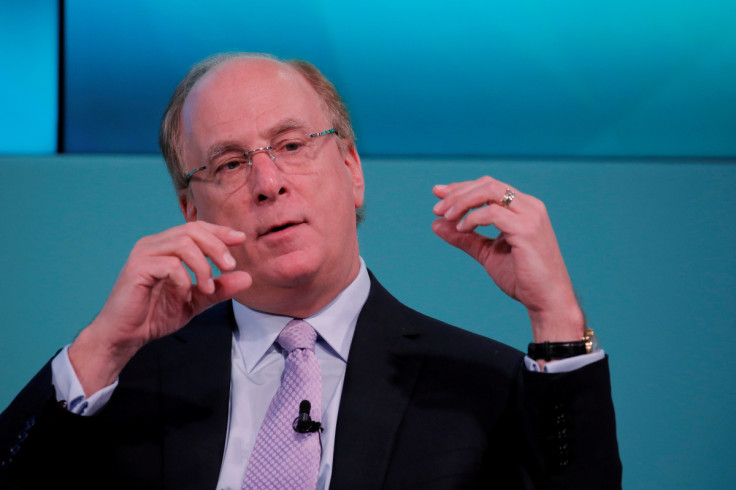BlackRock's Fink Defends Energy Investments Amid Criticism From 'Left And Right'

Larry Fink, chief executive of the world's biggest asset manager BlackRock Inc, on Wednesday defended his firm's energy investments after facing a backlash from lawmakers critical of its stance on environmental, social and governance (ESG) issues.
"Facts are not important with some sub-groups in this country," Fink told attendees at the Institute of International Finance conference in Washington, citing the company's $181 billion invested in U.S. energy companies.
"I'm now being attacked equally by the left and the right so I'm doing something right, I hope. I don't know. It's painful, but you know what? We're moving forward."
BlackRock is ready to fund U.S. energy pipelines as soon as the projects receive government approvals, he said.
The company is one of the largest financiers of pipelines in the world, investing in pipelines in Texas, Saudi Arabia and the United Arab Emirates. Energy security is in focus following the latest move by OPEC+ to cut its oil production target over U.S. objections.
BlackRock has faced criticism from many sides in the debate on low-carbon fuels, with environmentalists protesting it does too little to press for change at fossil fuel portfolio companies, and Republican U.S. politicians accusing it of boycotting energy stocks.
States including Texas, Arkansas, West Virginia, have targeted the firm for its ESG investment strategies. Louisiana said this month it will pull $794 million out of BlackRock's funds.
Fink was speaking ahead of BlackRock's release of its third-quarter results on Oct. 13, when it is expected to show a fall in quarterly revenue.
Financial markets have been slammed this year as global central banks have raised interest rates to fight stubbornly high inflation. Fink, however, said declines in stocks and bonds valuations present opportunities for investors, and his firm was witnessing big interest in bonds.
Citing factors such as an acceleration in building new supply chains, which were hit hard by the COVID-19 pandemic, Fink said measures to counter inflation may, in the long run, weigh on price pressures.
Separately, Fink was asked if he was concerned about Britain, where the economy and financial markets have been thrown into turmoil over recent weeks.
The nation is "experiencing elevated inflation because of the short-term impact of Brexit, when millions of people leave the country and they now have huge labor shortages, rising wages," Fink said.
"And so in my private conversations with the government today, I asked them that, because they have shortages in many different places and they said we're going to really create a much more accelerated process of managed immigration."
© Copyright Thomson Reuters 2024. All rights reserved.




















